There’s a certain Eau of je ne sais quoi 1 that permeates your mind, body and soul when contemplating boondocking. Sort of like the aroma of a nice perfume, it’s subtle, yet airy fragrance wafts around with a slight hint of mysterious overtones as it permeates your adventures. But maybe you’re afraid to inhale deeply, in case the malodorous scent isn’t quite to your liking? Quite risky, this choosing of your favourite stop, umm, I mean scent, umm, I mean spot. Wait, what exactly are we discussing? Why boondocking, of course!
In Tagalog, a language spoken in the Philippines, the word bundók translates to “mountain,” with the original boondocks referring to the Cordillera Central mountain ranges. Today, boondocks refer to a remote area, an out-of-the-way place. Before you start singing “Lord have mercy on those who camp in the boondocks” let’s talk about RV boondocking. Could you? Would you? Have you?
Boondocking is all about stopping and overnighting somewhere that is NOT a campground. Also known as dry camping (but to be all Dictionary-ish, dry camping simply means parking in a spot without hookups, so this can technically happen in campgrounds). Dispersed camping per the governmental agencies. Free camping? Pirate camping? Roughing it when wild camping? Going off the grid? Independent parking?
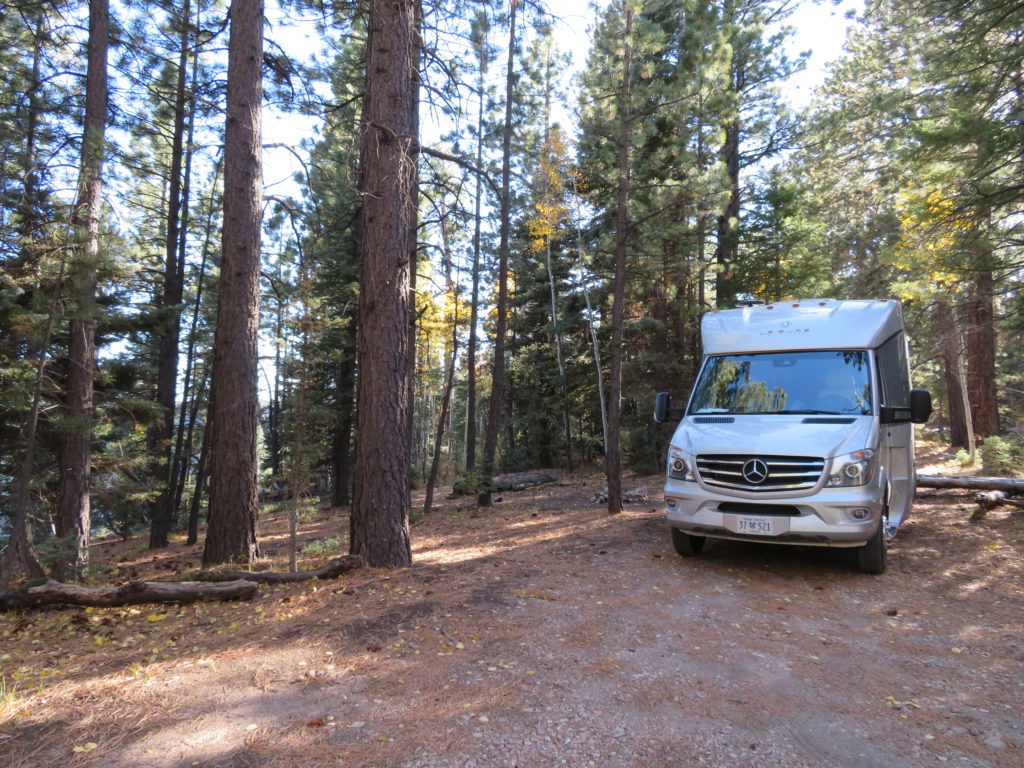
And then there’s Mooch-Docking, perfectly defined as staying in friend’s/family’s driveways.
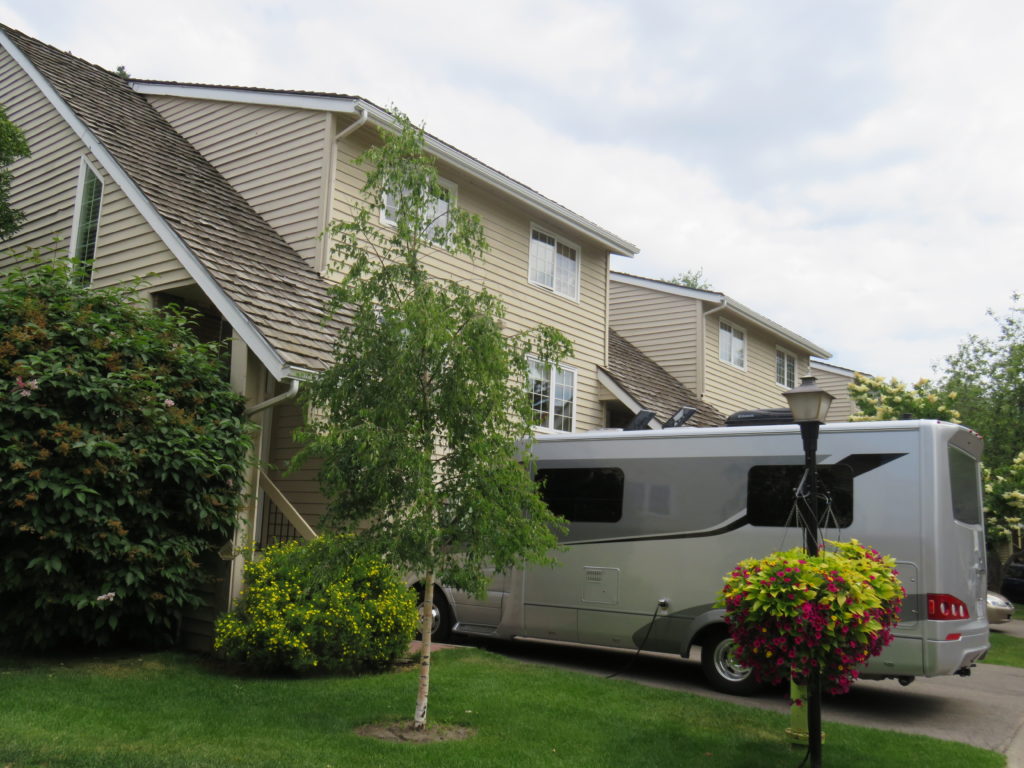
No matter what you decide to call it, and like the new perfume you want to trial before wearing, you should be aware of some essential premises. Boondocking activities require some knowledge, some prep work, and once there, some savoir-faire 2.
Do you have what you need to go boondocking? Most probably. Should you rush out and buy everything in sight in order to go? No. Most, if not all RV’s are perfectly equipped to boondock. The Leisure Travel Van is no exception.
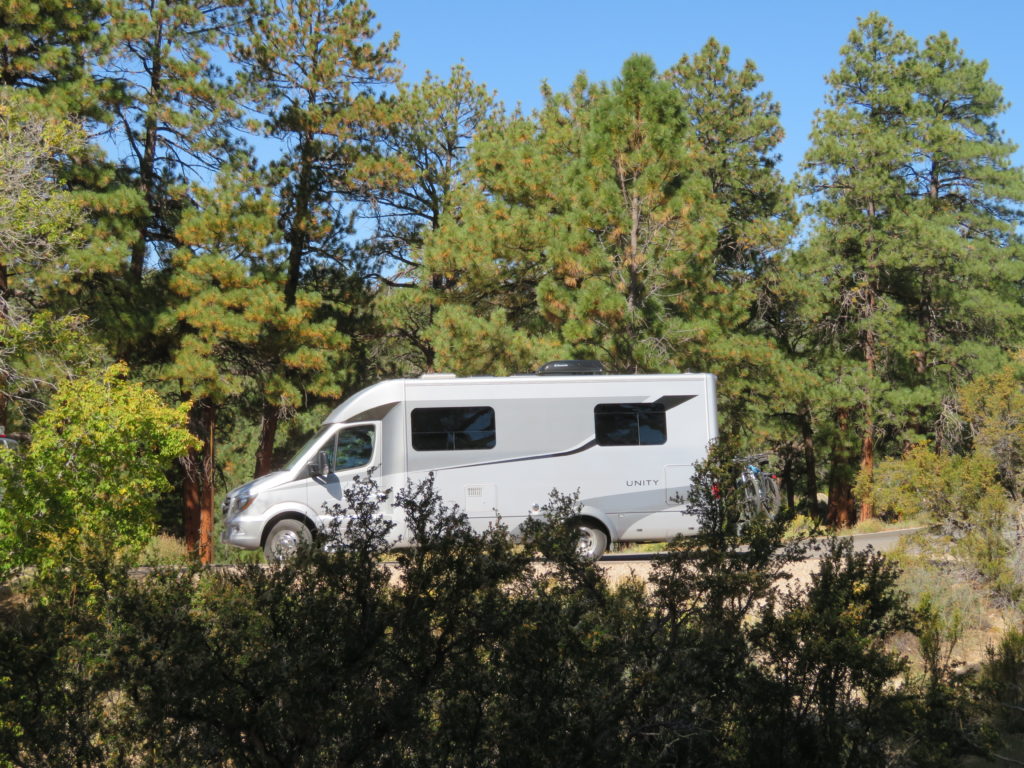
Boondocking means you’ll be living and/or overnighting somewhere, for one night or more, without any {{ gasp and shudder }} hookups. There will be no water to get. No electrical outlets to plug into. No dump station. You’ll be entirely dependent on your own self and your own resources. You’ll be sleeping, washing and eating with only and whatever you’ve brought with you. You’re now all of a sudden responsible for your very own everything!
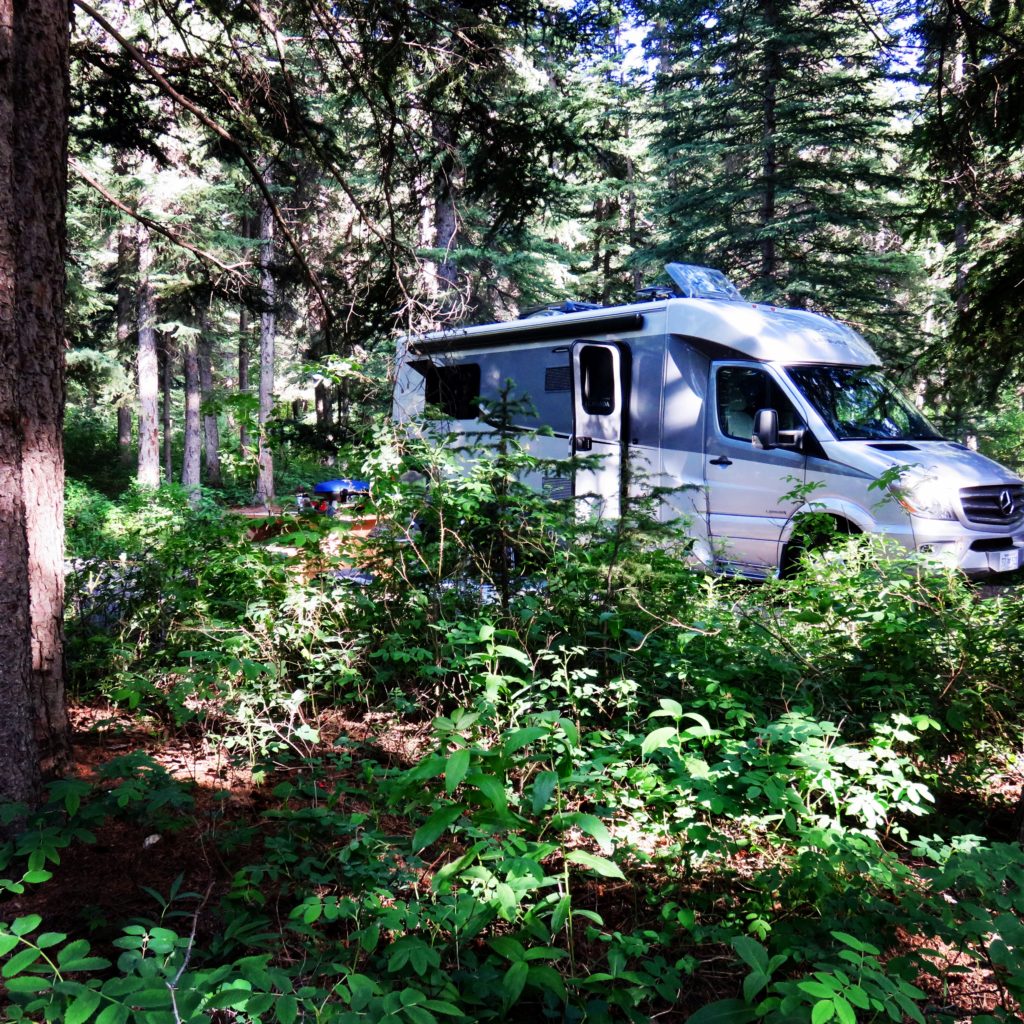
It’s a minimalist, green footprint type of experience. It makes for great campfire stories (like our first ever Wal-Mart stay had the parking lot Zamboni doing wheelies around our RV for what felt like one hour straight!) It’s not as hard as you might think (although if one of us tells the other to turn off the water one more time, I may pop someone a wheelie myself!) It helps to have a sense of adventure as it provides spontaneity to your travels and schedule so you can veer off the beaten path (just how many miles down that dusty, dirty gravelly road getting rock chips on my beautiful RV do I need to drive before I get there?)
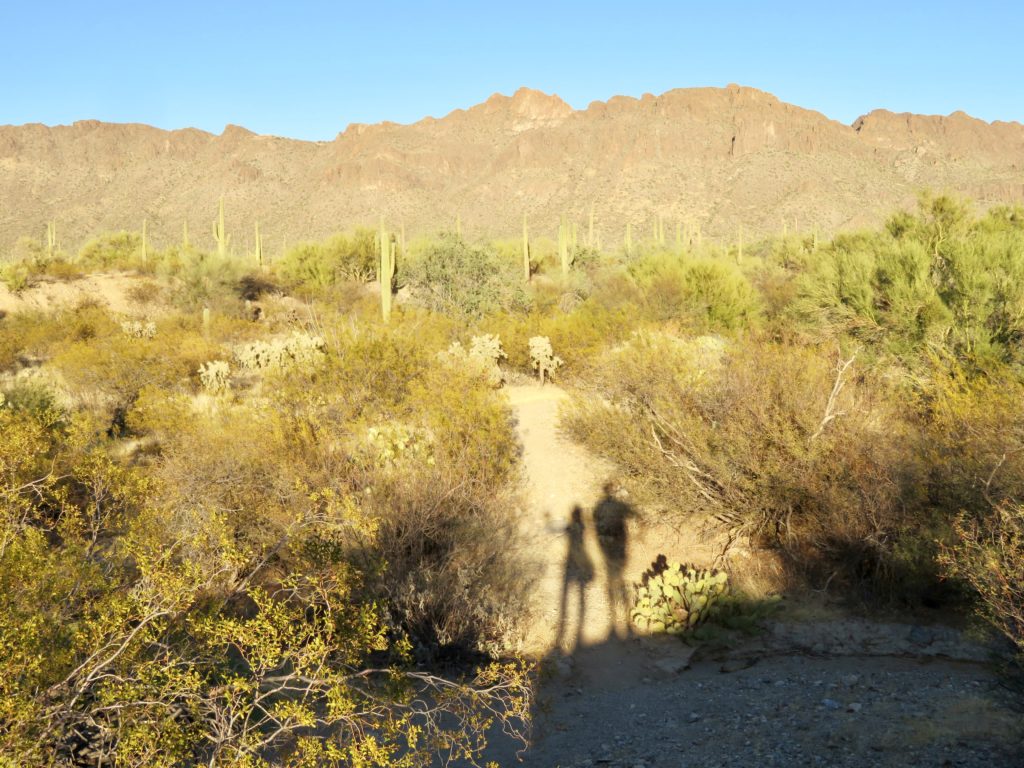 How is that appealing? Because it’s nice to know that you don’t need to be confined like a tether, to hookups all the time, in order to survive. Or have a good time. In fact, you’ll be just fine without.
How is that appealing? Because it’s nice to know that you don’t need to be confined like a tether, to hookups all the time, in order to survive. Or have a good time. In fact, you’ll be just fine without.
How do we do it? We combine our boondocking time with campground stays. We are very comfortable on our own resources for about 4 days before we need water. Oftentimes we get two water fill ups to one dump. Sometimes we find a free dump (with potable water, score!), sometimes we pay a minimal fee just to dump and other times we time our campground stays for that time of RV. A campground offers all the amenities we need, whether we full hookup or dry camp. Sometimes we choose a resort-type campground with bonus features: like laundry, a pool and Wi-Fi?? Being hockey fans we once booked into a KOA strictly for its cable hookups, so we could watch one of the playoff games. (What can we say, we are Canadian, eh?)
The reality of our lifestyle is such that, because we boondock more than not, staying in a campground becomes something akin to a spa day. For the RV!
When travelling we’re either en route, driving from A to B, and as such, are just wanting a place to crash for the night. Other times (and most times) we’re out adventuring, and much prefer the quiet experience of being one with nature. If the spot allows, and we like it, we know we can stay, and overnight, in the idyllic moment.
On the edges of a Bay in Newfoundland? Beautiful.
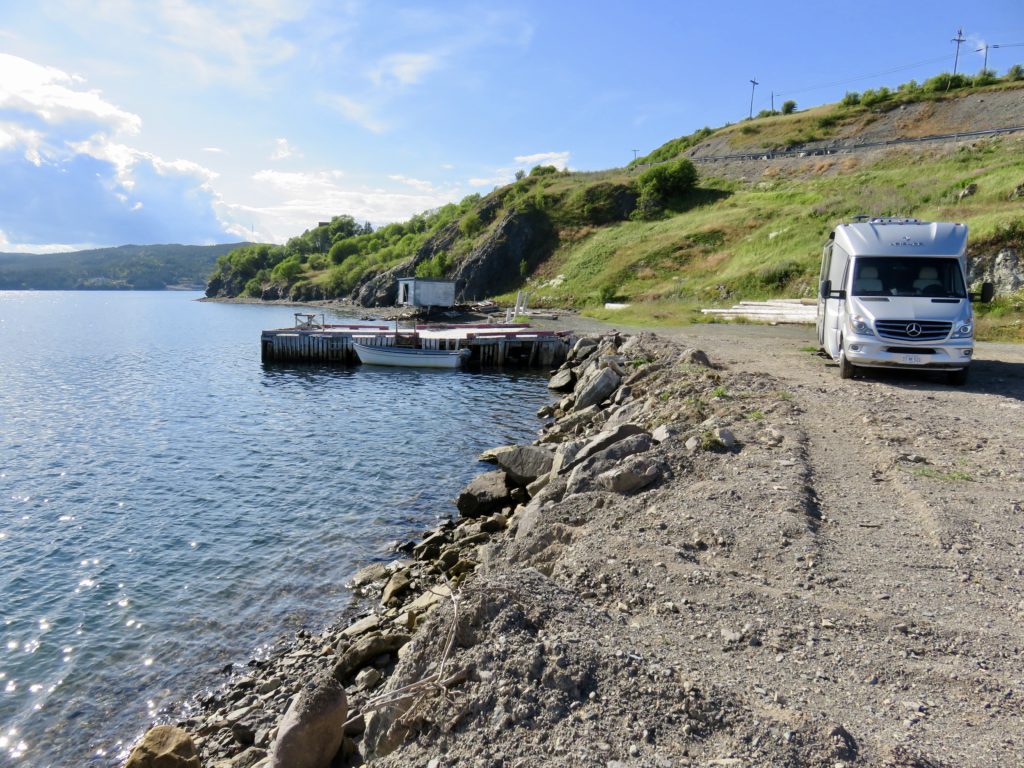
On the North Rim of the Grand Canyon? Without paying a penny? Yes, please!
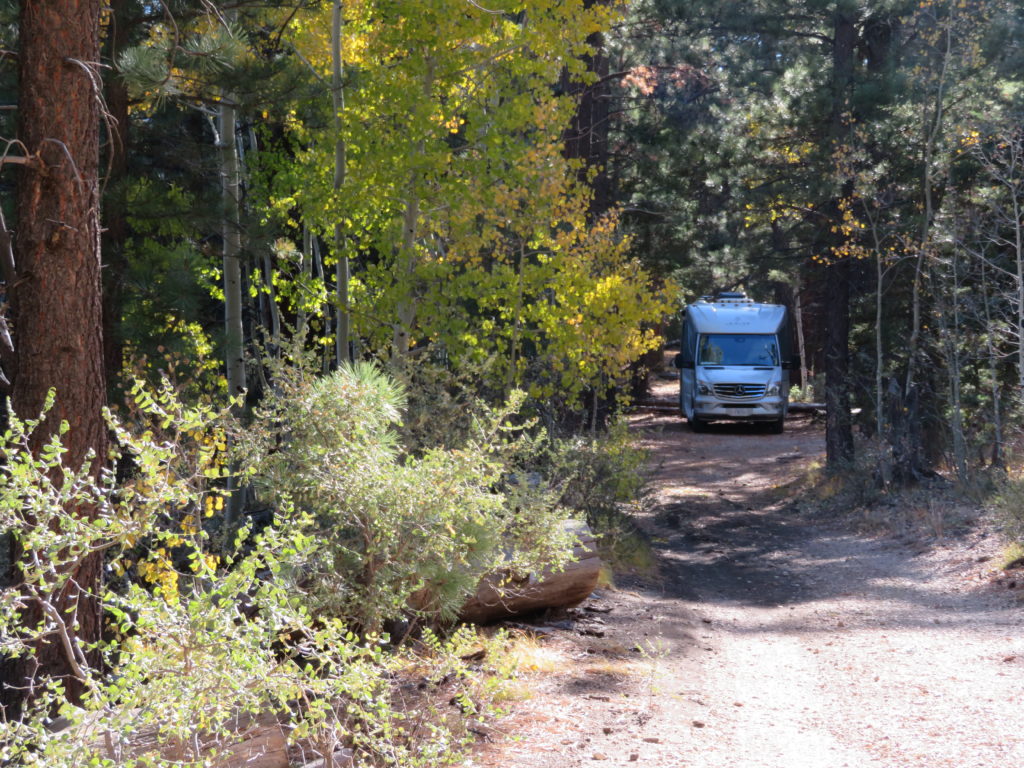
Wait, what? Without paying a penny? Yes. Boondocking is (almost) always free. Imagine for a moment that your (average) campground fees are approx $30/night, and you choose to boondock three nights a week? That’s a weekly savings of $100. Winner Winner, Steak Dinner! What could you do with an extra few dollars in your pocket?
Before you go, you should check a few things to make your time more comfortable.
Be empty
Make sure the grey and black tanks are empty. Get rid of all your garbage. There are no garbage cans out there, and Mother Nature is not your dumping ground, so if you brought it in, bring it out! But most importantly, you certainly don’t want your garbage to be attracting big beasts of any kind.
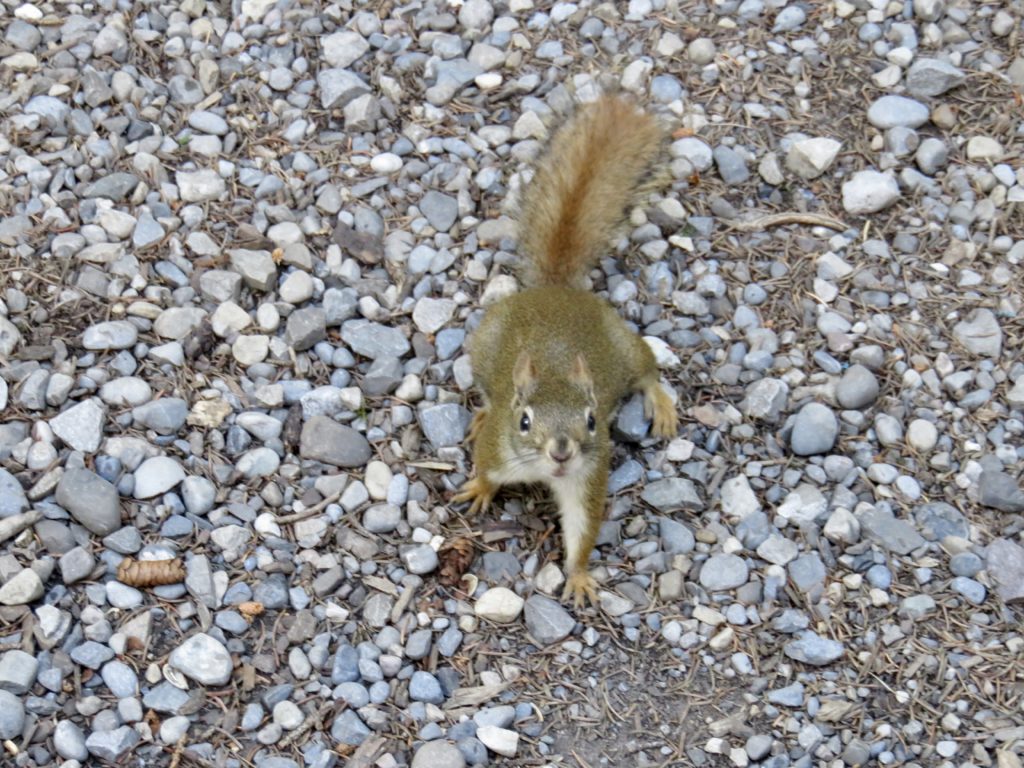
My Garbage-Ops start right at the grocery store, I get rid of as much extra packaging as possible before I bring anything into the RV (and in some places ensures that there are no critters coming in via cardboard). For example, meats get repackaged in serving size bags. Cereal/granola/type cardboard boxes are chucked with contents being stored in containers or baggies (while the cardboard could be used as campfire starter). Think about washing and prepping your fruits and veggies, discarding the unused bits, while you have access to water and garbage.
Why not plan and maybe even pre-make some meals so that there’s no dish-washing of large pots and pans?
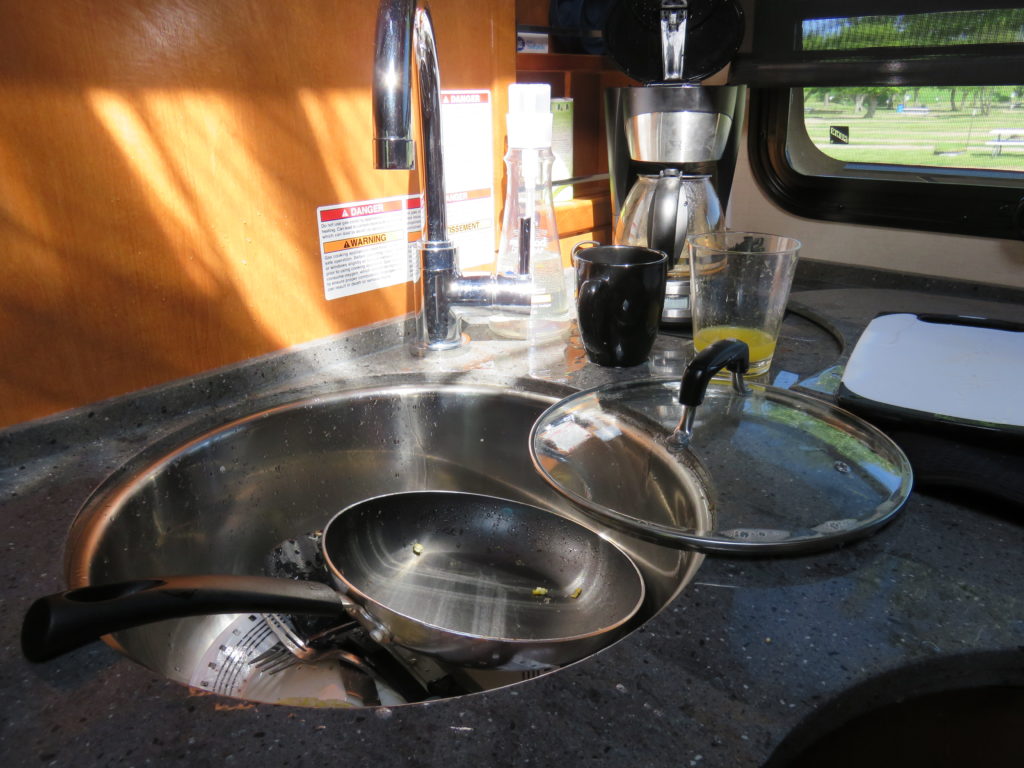
Be Full
We make sure we’re full of water. We always make sure our diesel is topped up. For safety, so that we can drive away for unrestricted distances should there be an emergency. And because we have a diesel generator, which will shut down if fuel levels go below 1/4 tank. We make sure our propane levels are topped up, as our exterior BBQ is linked into the RV’s propane supply. And we use propane for not only the heater on those chilly nights, but if we aren’t running the generator, it warms up our water for our showers.
Last but not least, we’re stocked with any special items required for our lifestyle: medicine for emergencies, toilet paper…
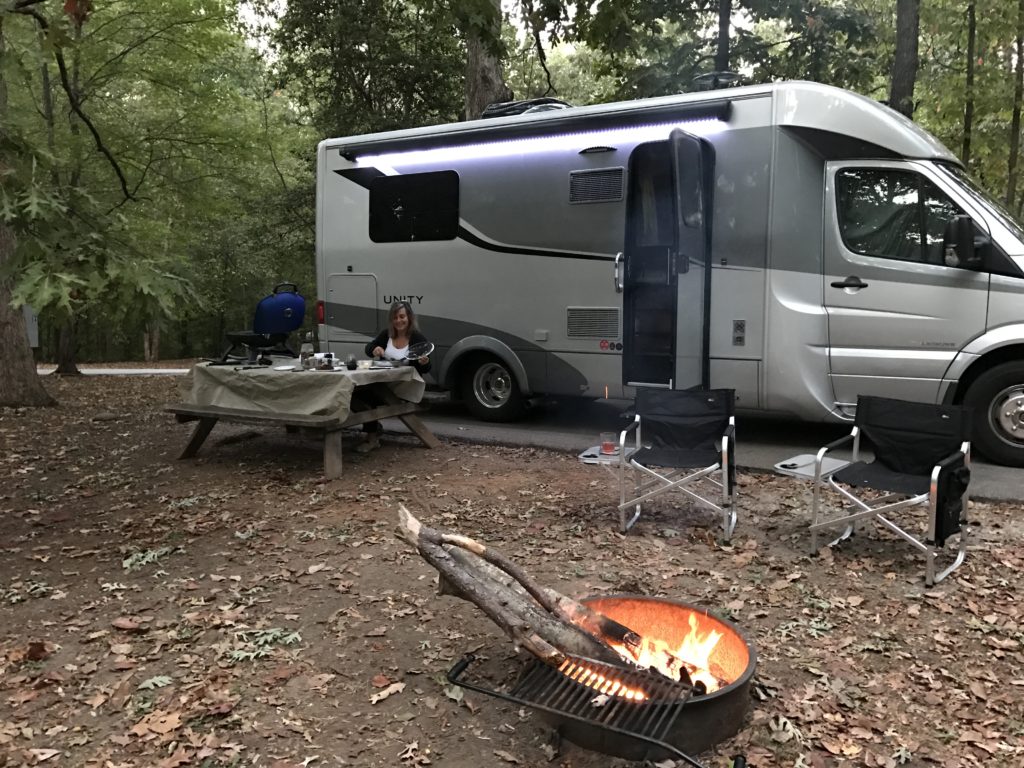
… and running out of celebratory Arrival Beers is never a good thing.
So now that we’re both empty and full, where are we going? For those times that we’re en-route, we stay in the neighbourhood.
- Boondockers Welcome – a Facebook group of like-minded RVers who host you on their property.
- Cabelas (select stores only)
- Casinos (free most times)
- Churches (watch the morning mass crowds)
- Cracker Barrel
- Rest areas and tourist information areas (select places only)
- Fairgrounds
- Harvest Hosts (an annual fee allows you to prearrange stays)
- Truck stops: Flying J, Loves, Pilot, T&A et al. All busy and on a first come, first serve type of parking, and remember to be respectful of the big rigs and their limited maneuvering abilities, this is their turf.
- Big Box Stores: Wal-Mart (Sam’s Club et al) allow overnights in most locations.
Ask vs Not Ask? If we see other RV’s there, we don’t ask. Remember that although overnight parking may be allowed by the store, the city may have ordinances that make it illegal and the local police can show up to oust you, or fine you.
Keep in mind that all of these places are a parking lot! They’re not (usually) the prettiest of places, they will be noisy, and are NOT your private campground to set up chairs and your awning and light up your BBQ.
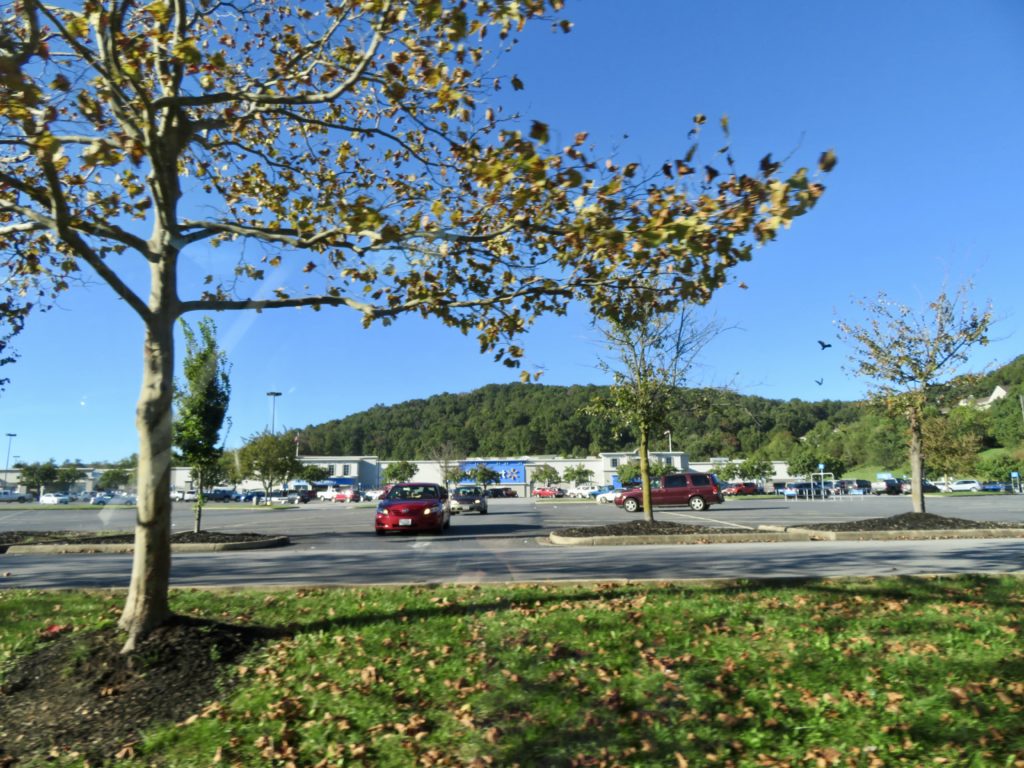
Then there’s boondocking of the boonie kind. Over 30% of United States of America (and certain parts of Canada – about 89% of Canada is designated as Crown Land) is set aside for public use. In the States there’s the US Forest Service, the Bureau of Land Management (BLM), the Wildlife Management Areas (WMA), National Grasslands. We find ours by researching the Allstays App, Free Campsites & boondocking websites, word-of-mouth, and by visiting the ranger offices themselves.
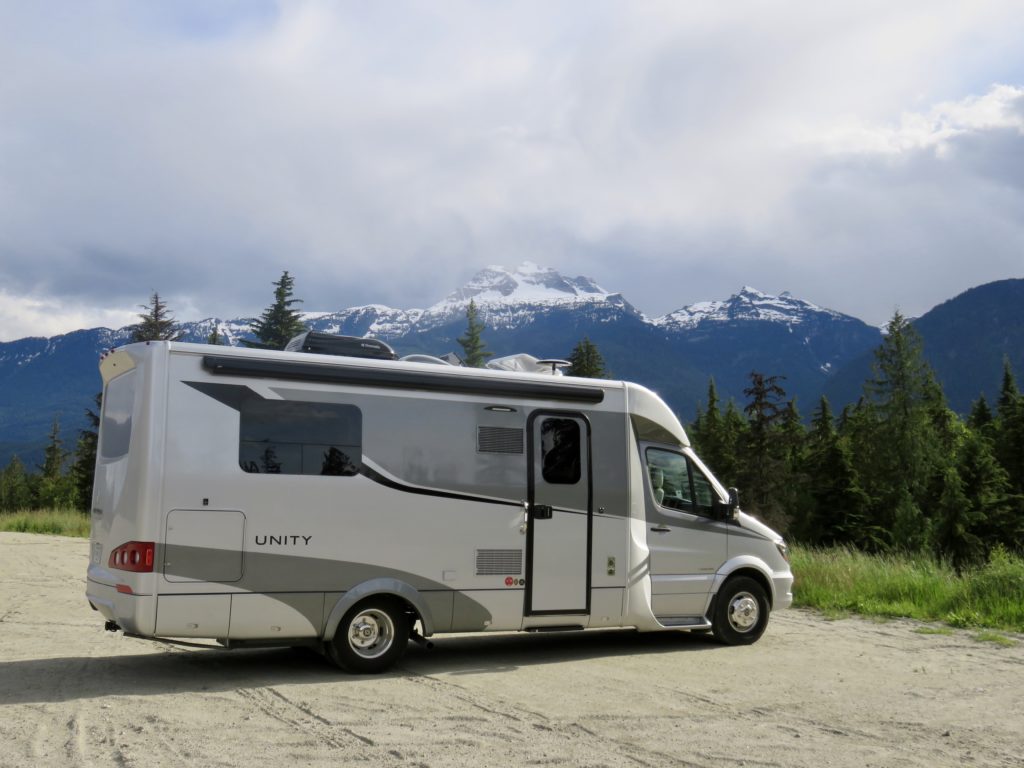
When using these though, remember area specific rules. Know how far away from the road you need to be (we’ve experienced rules of ¼ mile from the highway). Is your parking limited to previously used spots? Some are well identified with numbered posts and even come complete with stone hearths for campfires.
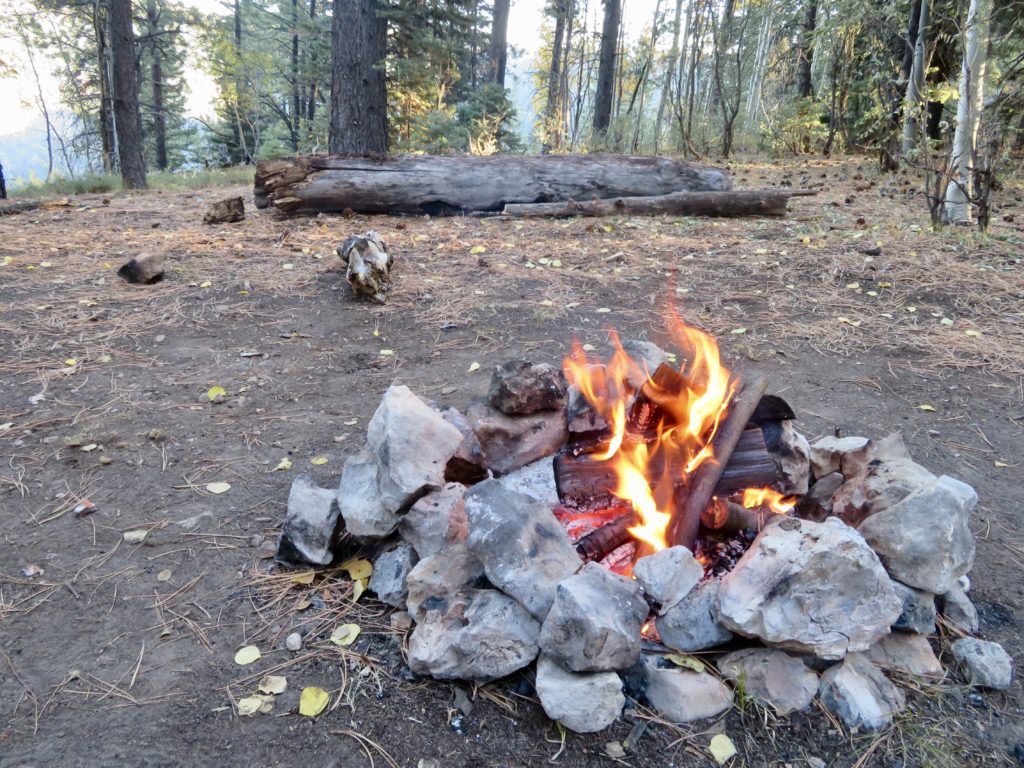
Other times you can simply set up camp beside a tree or brook. Is there a time limit? We’ve heard two weeks, after which you have to relocate at least 25 miles away.
This is by no means an exhaustive list. From crowded parking lots to remote and/or beautiful vistas, they all have one thing in common: you’re (usually) alone and you’re most definitely on your own, and where the only thing that will likely spook you is your own shadow.
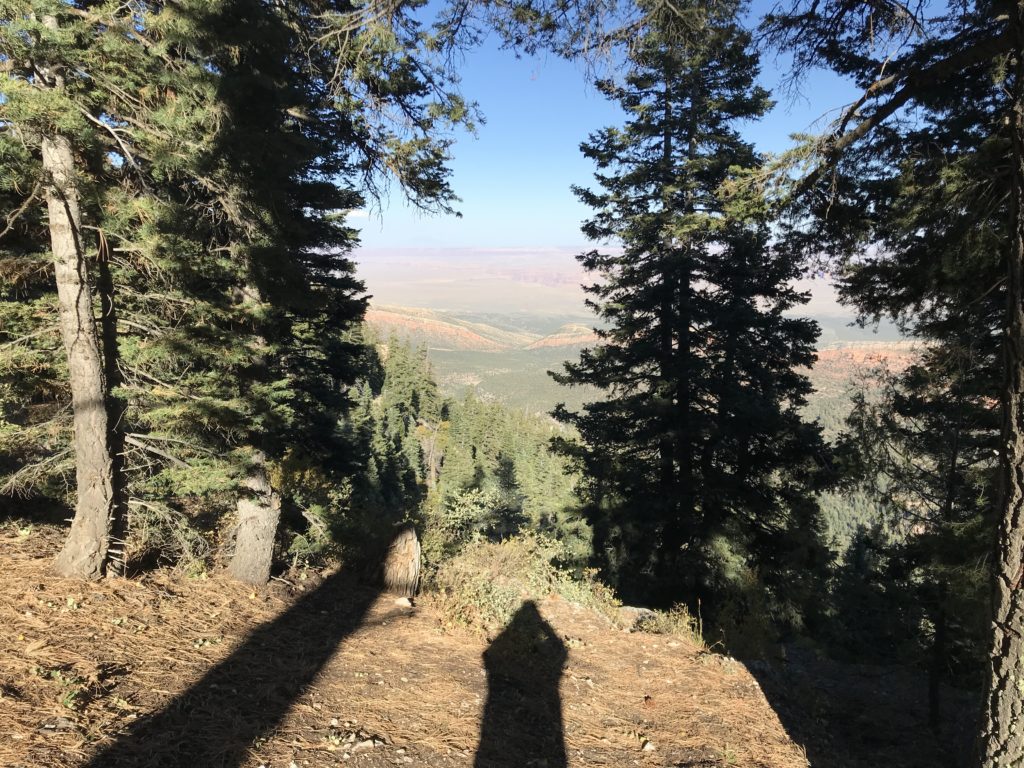
Smell that? Quel Joie! 3 Or Quel Horreur? 4
Is it legal? Of course. Are we scared? No. However, we are vigilant and prudent, and we always listen to our gut. If it’s uncomfortable, so are we. We wouldn’t leave our house with our door unlocked and the same practice applies to life in our RV. If we don’t want to lose it, we don’t leave it visible/out signalling attention or making for an easy grab, and that’s a rule we follow anytime, anywhere, be it in campgrounds or boondocks.
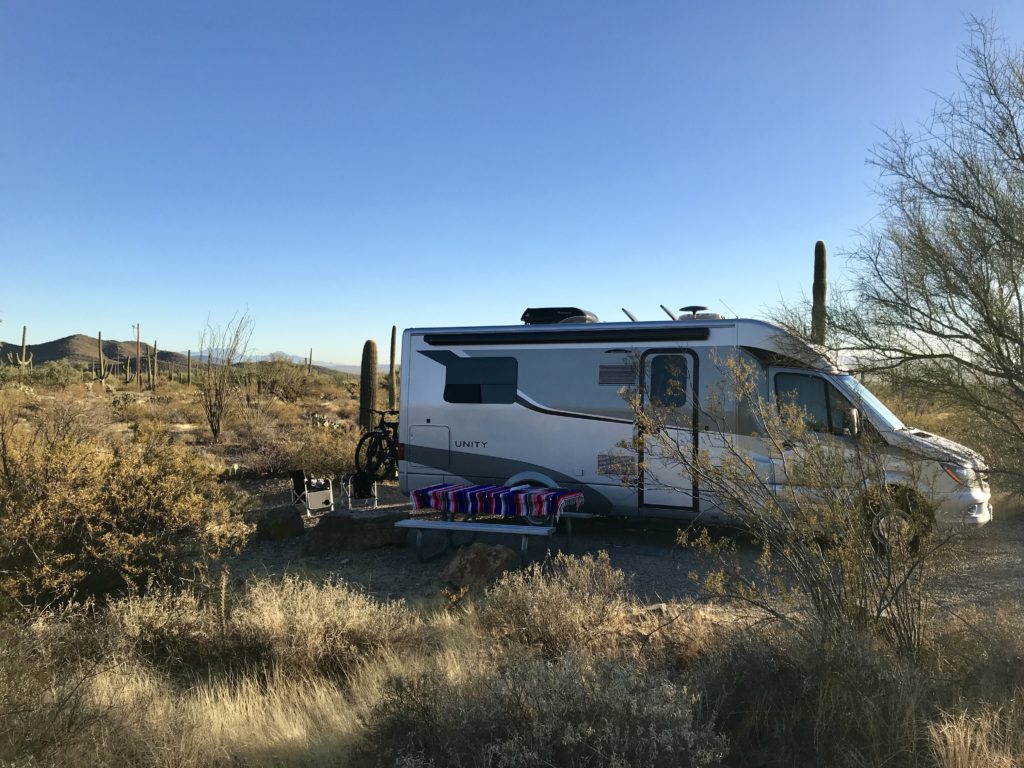
If it makes you more comfortable, then send your itinerary of whereabouts to family/friends. This way, someone else knows where you’re going, how long you’ll be gone for and when you plan to be back in touch. Have a heavy duty flashlight or noise-maker (whistle, air horn) nearby, the noise itself might be enough to scare any potential threat away.
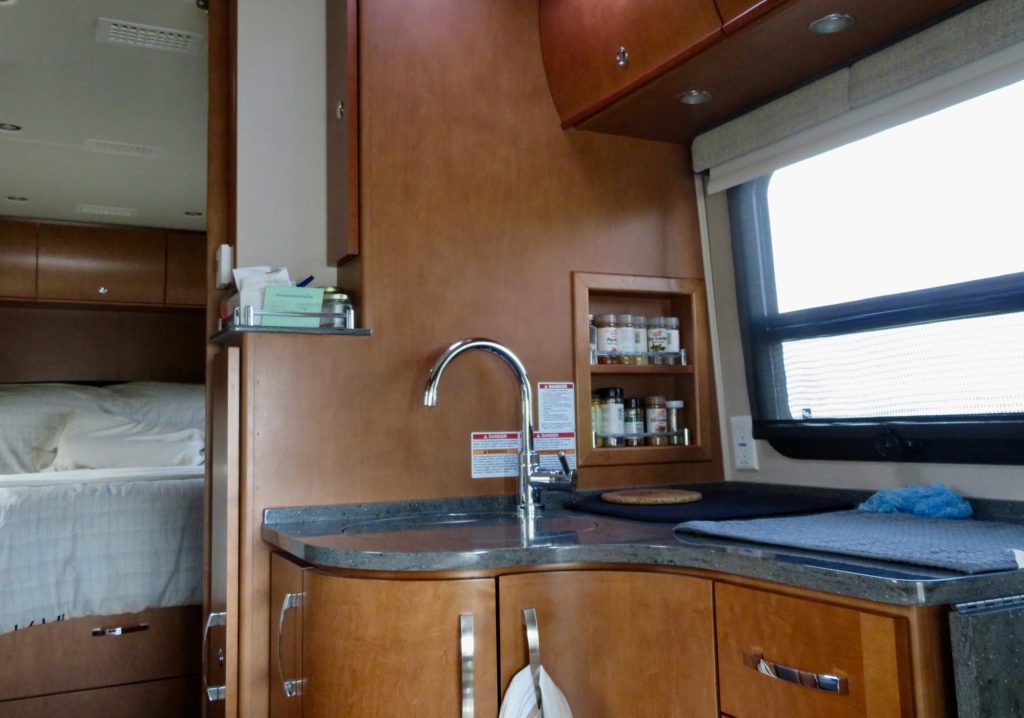
However that being said, there’s only one time in two years of full-time part-time RVing that we’ve ever moved our RV. Just before bedtime, while at a Wal-Mart, we noticed one too many brown paper bag exchanges happening right outside our bedroom window. We moved to the other side of the parking lot and had a peaceful and comfortable night.
So now you’re empty, you’re full, and you have a whole arsenal of potential places you could go to. But what happens when you get there? It’s not only all about location, but all about conservation!
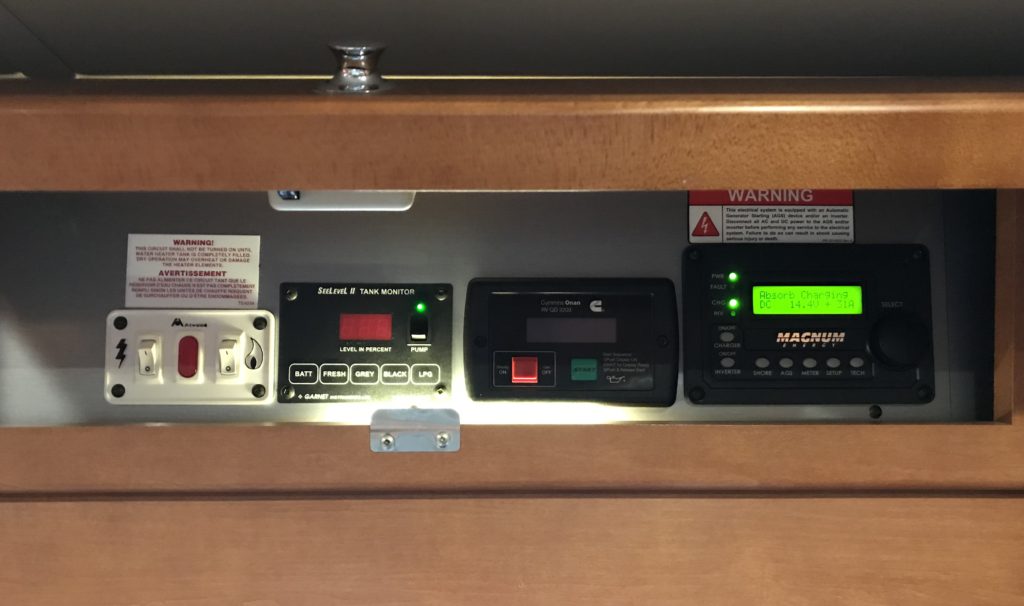
Each RV and lifestyle is different. The more battery capacity you have, the more power you can store, and the longer you can go without having to charge the batteries. Think of the inverter as a power switch, and when you turn it on it provides the power to the devices you have plugged in: Toaster? Hair Dryer? Coffee machine? The more appliances you use, the more it drains your batteries (unless you’re generating), and the more often you need to recharge.
You charge the batteries by using your generator (Diesel or Propane) or with Solar (remember to park in open sun areas, not under a canopy of dense tree foliage).
In an obvious segway of events, the less power you use, the less you have to replenish (and generate), leaving you more time to go out doing what you came here to do. Do you really need turn on your generator in the perfect stillness of morning to power that Keurig or can you use a good ole fashioned percolator on your stovetop? Do you need to use the microwave to warm things up, or can you use a pot/pan? Do you need the TV on, if you’re not really listening to the show? Remember to turn off both your TV antenna booster and your inverter, they both draw power if left on.
The other resource that’s quick to drain away is water, with the biggest culprits are showering and dishes. We take Navy showers: water on, get wet, water off. Sudz up, shampoo up. Water on, rinse off, water off. Don’t leave the water on when brushing teeth or washing hands. How about them baby wipes, washcloth wipe downs, external solar showers? For dishes, try paper plates? They can easily be burned in our campfire later that evening.
We have a plastic tub that fits our galley sink, so when we’re done washing dishes, we can dump the wastewater outside (watch what you’re dumping and where!) and it doesn’t fill up our grey water tank.
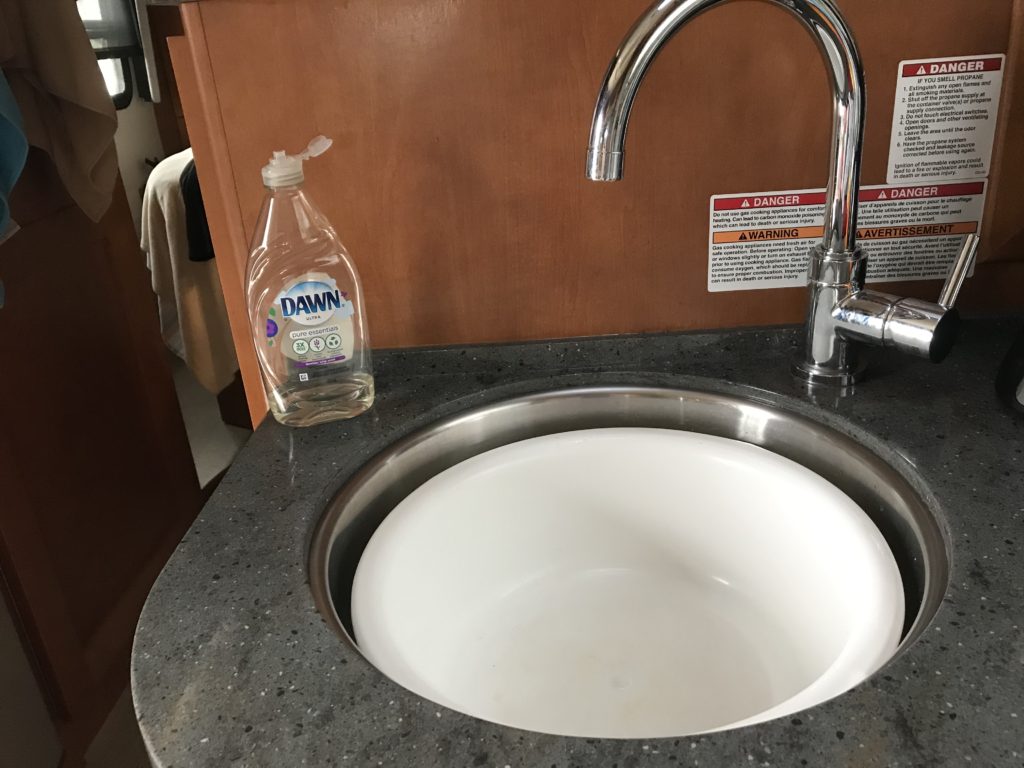
With our model, a Unity IB, the wastewater from our bathroom sink goes into our black holding tank.
Get intimate with your RV before even leaving your own driveway.
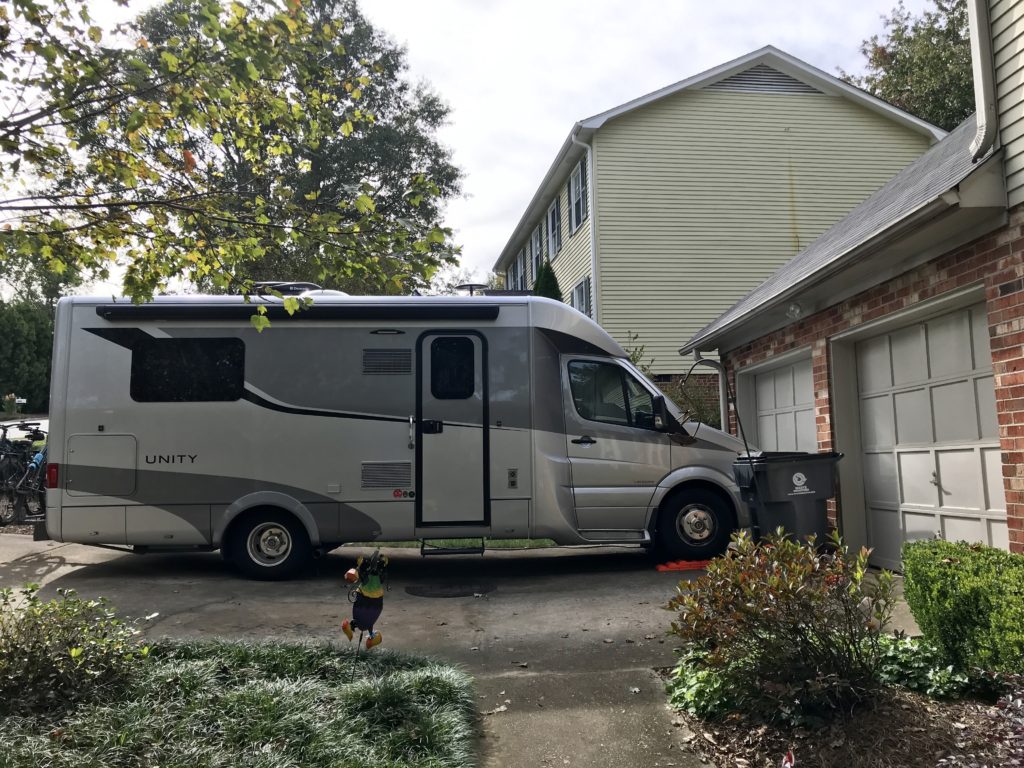
Read the manuals, watch how-to video’s when you’re home and have Fast and Furious WiFi. Facebook newsfeeds/discussion forums can be helpful, although at times the Q&A’s can be a lot of information to sift through, time consuming and just plain overwhelming to absorb.
Chat with fellow RVers, there’s always something new to be learned, or some tidbit shared, with every new friend you make.
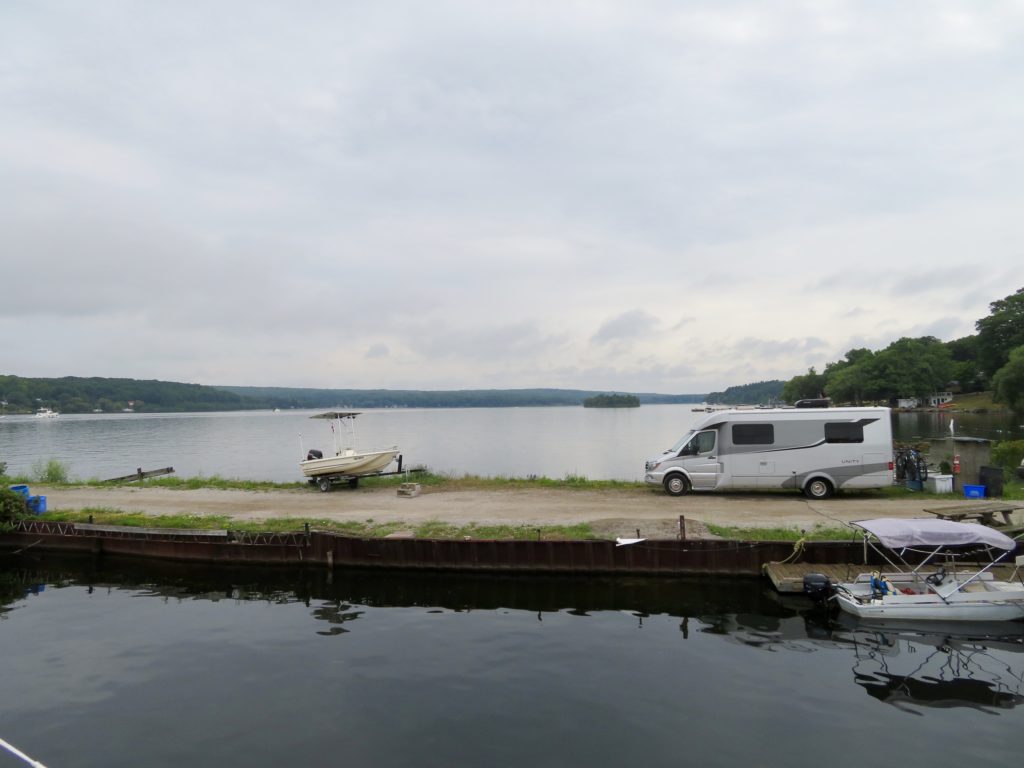
And last but not least, the best result for your efforts? Just Go. Practice a boondocking getaway. Check your water levels, have a shower, and then check them again. Do the dishes, and re-verify. See how much you’ve used and then you can easily do the math. See what a days worth of using your appliances does to your batteries.
Everyone has different habits, wants, needs and desires and while there’s a multitude of tips and tricks out there, we’re sure these will get you going, and then you’ll create a few of your own, ready to share with the rest of us.
After all, practice gets you on the road to perfect.
Think you got a good whiff of the newest scent out there? Joie de boondocking. 5
Footnotes
- Je ne sais quoi: A certain something, an I don’t know what ↩
- Eau of je ne sais quoi: literally means water of I don’t know, but Eau of… in this case really refers to a scent, a perfume.
- Savoir-faire: Know how ↩
- Quel joie: Oh, the joy ↩
- Quel horreur: Oh, the horror ↩
- Joie de boondocking: The joys of boondocking ↩


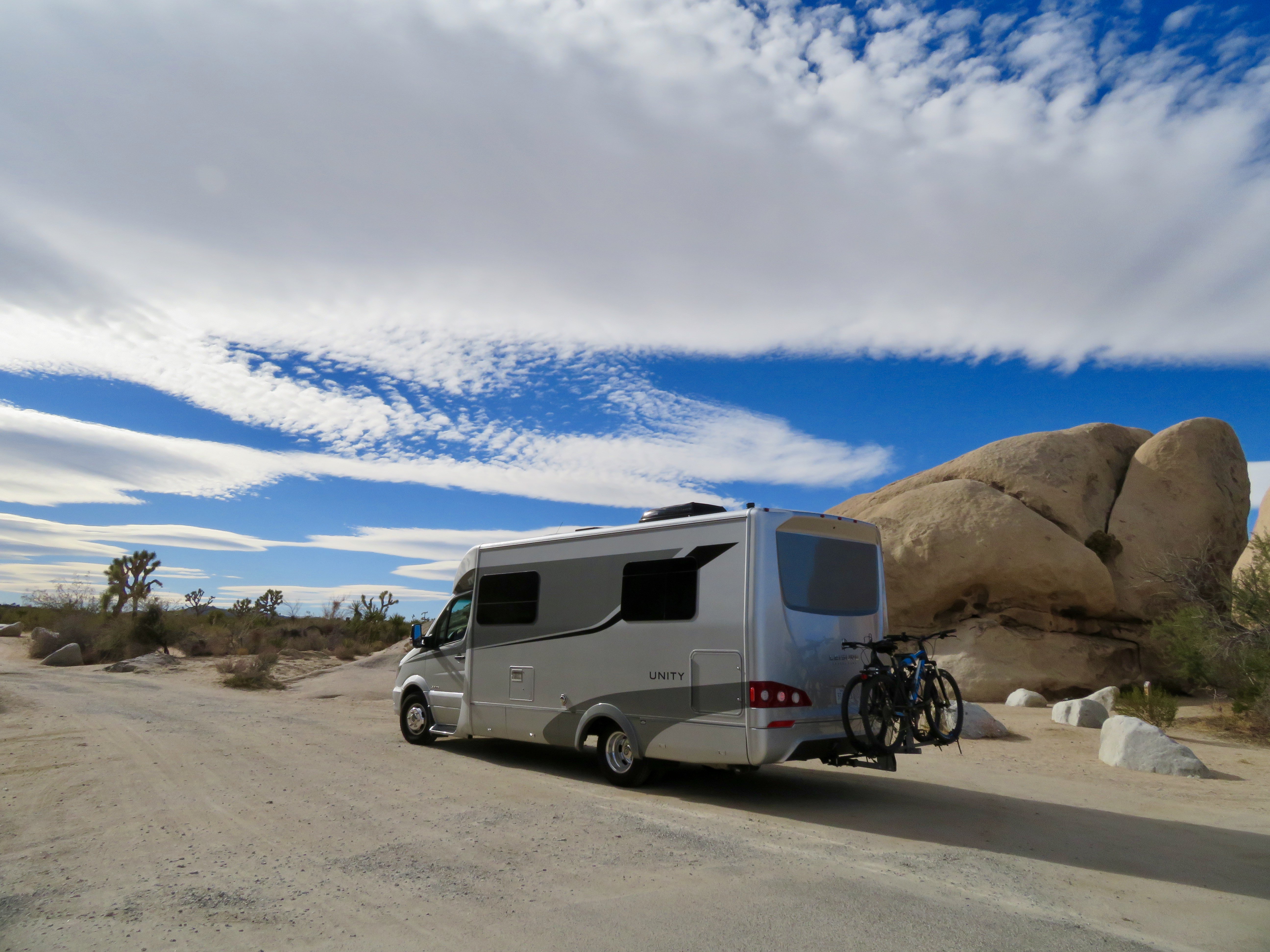
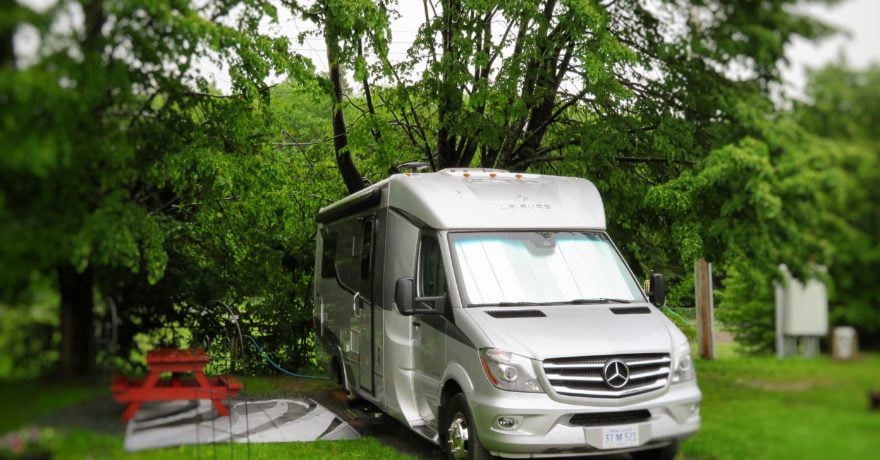
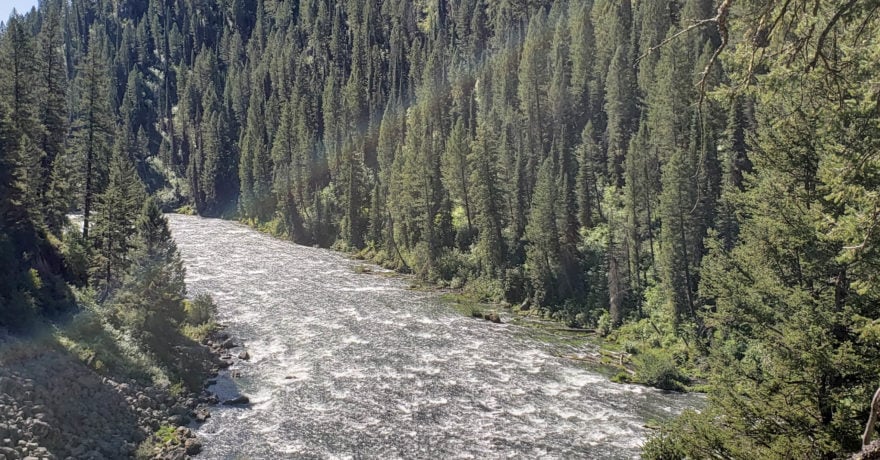
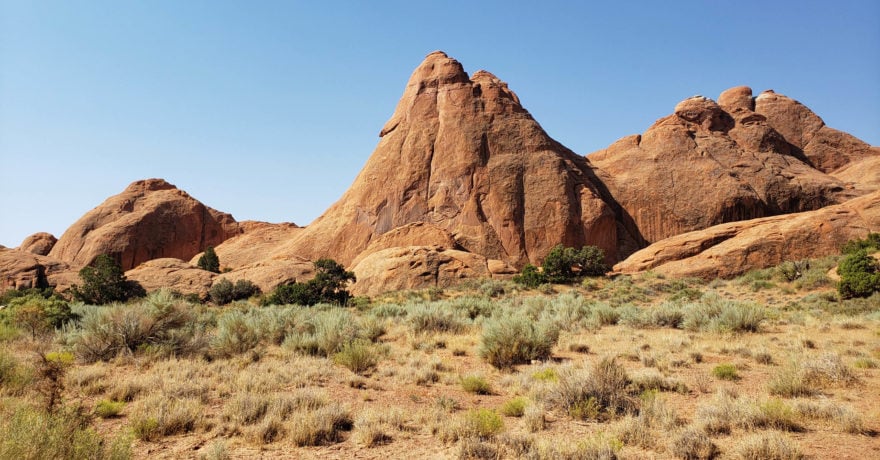
Comments